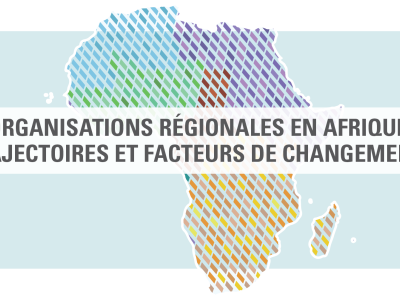International food prices have been on the rise for most of 2012, with the cost of corn and soyabeans hitting an all-time high this summer. It is since the global food price crisis in 2008 that agriculture and food security are back to centre stage. And the L’Aquila Food Security Initiative, launched in 2009 by a large coalition including the G20, African countries and the whole UN Family, (re)positioned those issues at the core of international development processes. Africa's approach was particularly bold, as countries revitalized the Comprehensive Africa Agriculture Development Programme (CAADP), originally launched in 2003, with substantial progress in the design of national food security compacts and investment plans. The CAADP, widely supported by the international community, has made great strides in terms of African ownership, aid predictability and coordination, and robust plans for mutual accountability.
Despite these efforts, many of the factors behind the 2008 crisis and the persisting levels of hunger throughout the world are still there: low levels of technology, droughts, abrupt changes in input prices, slow supply response due to poor infrastructure and market integration, and export bans. The current food crisis in the Horn of Africa and the Sahel reminds us how particularly serious the situation is in many parts of that continent.
Given its centrality for poverty reduction and its profile in development debates, this special issue of GREAT Insights focuses on food security, covering some of the ‘outstanding issues’. Representatives from farmers organisations and development partners write about the relation between regional cooperation and food security, particularly relevant for CAADP, as GREAT Insights has highlighted systematically in previous issues. Recent security threats capturing the headlines (Somalia, Mali, Kenya) show that regional crises require more regional solutions, such as food trade, wiser transboundary water management, etc. Other articles explore important general questions, which also challenge the effectiveness of CAADP, such as: what agricultural development model is the renewed international attention promoting? what role for climate-smart agriculture? how are emerging economies like Brazil interacting with African partners to promote food security? what role for private sector and aid? how are political economy dynamics affecting national processes? how can multilateral institutions support, also considering the new ‘Zero Hunger Challenge’ launched at the Rio+20 Summit?
The political dimension is one particular aspect worth emphasizing here, because it underpins many of these ‘outstanding issues’ that limit faster progress on food security, as it also emerges from experiences with CAADP. Most politicians think about the ‘next elections’, hence short-term measures, rather than about the ‘next generations’, through long term and structural solutions. Well conceived policies and investment plans do not attract vital private sector investment due to remaining political bottlenecks, such as non-implementation of land reforms, or because governments do not really build multi-stakeholder partnerships. The CAADP target of mobilizing 10% of public expenditure for agriculture is missed in so many African countries also because politicians often are not involved in CAADP.
The lack of ‘policy coherence for development’ on the side of the richer countries, supporting food security with aid, but hampering it with other measures, is also related to political choices, like domestic subsidies that undercut poor farmers’ markets, or the idleness in the fight against food prices speculation and international land grabs.
Politics must do better. In terms of CAADP, for instance, political feasibility should be more prominent in the design and implementation of policies and investment plans. A special AU Heads of State Summit to mark the 10th anniversary of CAADP in 2013 would also be a good idea, with the objectives of: sustaining political momentum at highest level; renewing CAADP goals, making them politically more attractive (e.g. employment, not only agricultural productivity); and enhancing accountability and transparency in public and private action for food security, including through better involvement of politicians and parliaments.
That is why ECDPM will not only continue to work on regional dimensions of CAADP, but also on the political economy of food security and the political attractiveness of proposed solutions, including by facilitating frank policy dialogue among interested stakeholders.
Francesco Rampa is Programme Manager Food Security at ECDPM
This article was published in GREAT Insights Volume 1, Issue 7 (September 2012)




